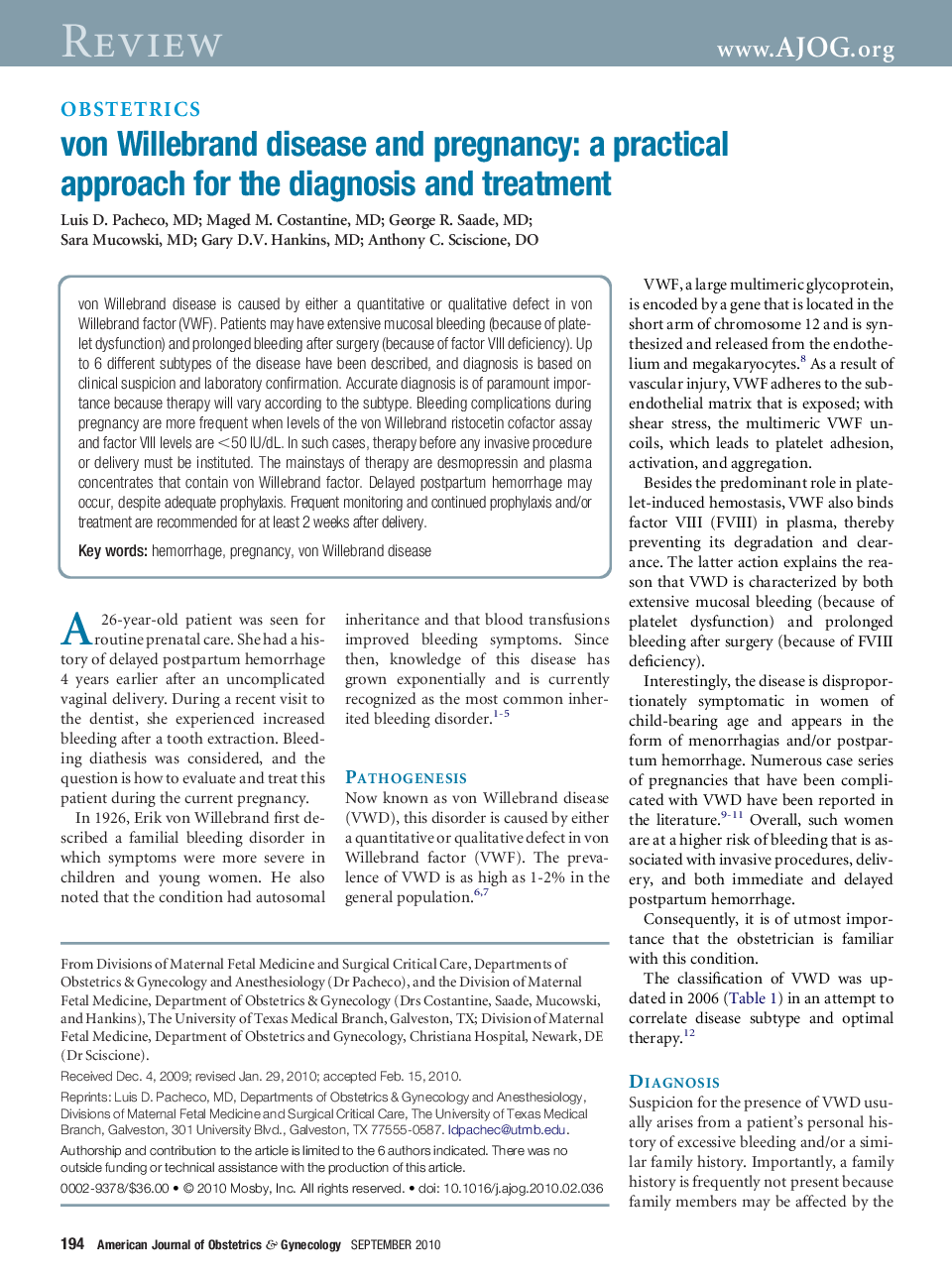| Article ID | Journal | Published Year | Pages | File Type |
|---|---|---|---|---|
| 6147146 | American Journal of Obstetrics and Gynecology | 2010 | 7 Pages |
von Willebrand disease is caused by either a quantitative or qualitative defect in von Willebrand factor (VWF). Patients may have extensive mucosal bleeding (because of platelet dysfunction) and prolonged bleeding after surgery (because of factor VIII deficiency). Up to 6 different subtypes of the disease have been described, and diagnosis is based on clinical suspicion and laboratory confirmation. Accurate diagnosis is of paramount importance because therapy will vary according to the subtype. Bleeding complications during pregnancy are more frequent when levels of the von Willebrand ristocetin cofactor assay and factor VIII levels are <50 IU/dL. In such cases, therapy before any invasive procedure or delivery must be instituted. The mainstays of therapy are desmopressin and plasma concentrates that contain von Willebrand factor. Delayed postpartum hemorrhage may occur, despite adequate prophylaxis. Frequent monitoring and continued prophylaxis and/or treatment are recommended for at least 2 weeks after delivery.
